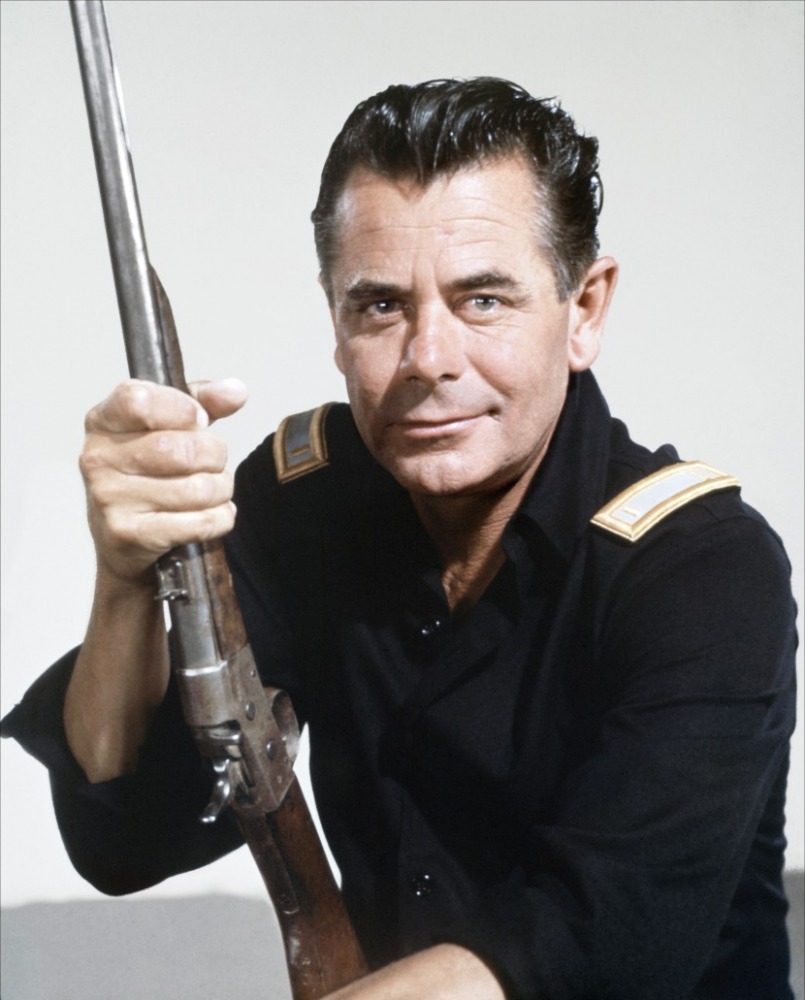Glenn Ford was a prominent figure in Hollywood, renowned for his dynamic performances and magnetic screen presence. As we delve into the life and career of this iconic actor, we unveil the significant events that shaped his journey in the entertainment industry. From his rise to fame in the film industry to his later years, Ford's story is one of resilience, talent, and unforgettable contributions to cinema.
In this article, we will explore the various aspects of Glenn Ford's life, including his early beginnings, his most notable films, and the challenges he faced throughout his career. Additionally, we will provide insights into his personal life, shedding light on the man behind the legend. As you read further, you'll discover why Glenn Ford remains a significant figure in film history.
Join us as we take a deep dive into the life of Glenn Ford, examining what happened to this celebrated actor and why his legacy continues to resonate with audiences today. Whether you're a long-time fan or new to his work, this comprehensive overview will enrich your understanding of Glenn Ford's impactful career.
Table of Contents
Early Years
Glenn Ford was born on May 1, 1916, in Sainte-Christine-d'Auvergne, Quebec, Canada. His birth name was Glenford Alan Ford. His family moved to the United States when he was a child, settling in Los Angeles, California. Glenn was drawn to acting from a young age and began his career in local theater productions.
After graduating from high school, Ford attended the University of California, Los Angeles (UCLA), where he studied acting. His early experiences in theater laid the foundation for his future success in Hollywood. Ford's unique charm and versatility as an actor quickly caught the attention of talent scouts.
Rise to Fame
In 1939, Glenn Ford made his film debut in "Heaven with a Barbed Wire Fence." However, it was his performance in "The Gilded Lily" (1935) that marked his first significant breakthrough. Ford's career began to soar as he transitioned from supporting roles to leading man status.
Throughout the 1940s and 1950s, Ford starred in a string of successful films, including the classic Western "Gilda" (1946) alongside Rita Hayworth. His ability to portray a wide range of characters, from romantic leads to tough-guy roles, solidified his position as one of Hollywood's most bankable stars.
Major Film Roles
- "Gilda" (1946)
- "The Big Heat" (1953)
- "Blackboard Jungle" (1955)
- "The Courtship of Eddie's Father" (1963)
Notable Films
Glenn Ford's filmography boasts a diverse array of genres, showcasing his versatility as an actor. Some of his most notable films include:
- "The Black Rose" (1950) - A historical epic that showcased Ford's ability to lead a large-scale production.
- "The Fastest Gun Alive" (1956) - A Western that highlighted Ford's charm and charisma.
- "Pocketful of Miracles" (1961) - A comedy-drama where Ford demonstrated his comedic timing and emotional depth.
- "Superman" (1978) - Ford took on the role of Jonathan Kent, introducing a new generation to his talent.
Personal Life
Glenn Ford's personal life was marked by several high-profile relationships and marriages. He was married three times, first to actress Eleanor Powell, then to actress Rita Hayworth, and finally to actress and producer, Kay McCarthy.
Despite his on-screen success, Ford faced challenges in his personal life, including struggles with relationships and the pressures of fame. His friendships with fellow actors and directors were well-documented, and he was known for his generosity towards his colleagues.
Later Years
In the later years of his career, Glenn Ford continued to act but took on fewer roles. He focused on projects that interested him and often worked with younger filmmakers. Despite a declining number of roles, Ford remained a beloved figure in Hollywood.
In the 1990s, Ford began to slow down due to health issues but continued to make occasional appearances in films and television shows. His last major role was in the TV movie "The Can't Hardly Wait" (1998).
Health Issues
Throughout his later years, Glenn Ford faced various health challenges, including heart problems and complications related to aging. Despite these difficulties, he remained active and engaged with fans, often participating in interviews and retrospectives about his career.
Legacy
Glenn Ford passed away on August 30, 2006, at the age of 90. His legacy continues to endure through his films, which are celebrated by audiences and critics alike. Ford's contributions to cinema have left an indelible mark on Hollywood, and he is remembered as one of the greatest actors of his time.
His work has inspired countless actors and filmmakers, and his films remain popular today. Ford's ability to connect with audiences and his dedication to his craft solidify his status as a legendary figure in the entertainment industry.
Conclusion
In conclusion, Glenn Ford's journey from humble beginnings to Hollywood stardom is a testament to his talent and determination. His significant contributions to film continue to inspire new generations of artists. As we reflect on his life and career, we invite you to share your thoughts and memories of Glenn Ford in the comments below. Don't forget to explore more articles on our site to learn about other iconic figures in cinema.
Final Thoughts
Thank you for joining us on this exploration of Glenn Ford's remarkable life. We hope this article has provided you with valuable insights into the actor's career and personal experiences. We encourage you to return to our site for more engaging content on the world of film and television.


